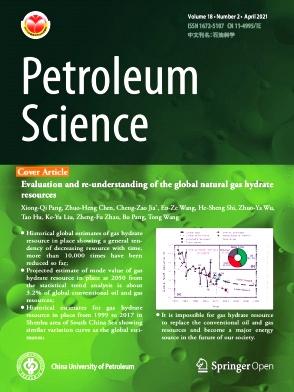An intelligent drilling guide algorithm design framework based on highly interactive learning mechanism
IF 6.1
1区 工程技术
Q2 ENERGY & FUELS
引用次数: 0
Abstract
Measurement-while-drilling (MWD) and guidance technologies have been extensively deployed in the exploitation of oil, natural gas, and other energy resources. Conventional control approaches are plagued by challenges, including limited anti-interference capabilities and the insufficient generalization of decision-making experience. To address the intricate problem of directional well trajectory control, an intelligent algorithm design framework grounded in the high-level interaction mechanism between geology and engineering is put forward. This framework aims to facilitate the rapid batch migration and update of drilling strategies. The proposed directional well trajectory control method comprehensively considers the multi-source heterogeneous attributes of drilling experience data, leverages the generative simulation of the geological drilling environment, and promptly constructs a directional well trajectory control model with self-adaptive capabilities to environmental variations. This construction is carried out based on three hierarchical levels: “offline pre-drilling learning, online during-drilling interaction, and post-drilling model transfer”. Simulation results indicate that the guidance model derived from this method demonstrates remarkable generalization performance and accuracy. It can significantly boost the adaptability of the control algorithm to diverse environments and enhance the penetration rate of the target reservoir during drilling operations.
一种基于高度交互学习机制的智能导钻算法设计框架
随钻测量(MWD)和导向技术已广泛应用于石油、天然气和其他能源的开采。传统的控制方法面临诸多挑战,包括抗干扰能力有限和决策经验泛化不足。针对复杂的定向井轨迹控制问题,提出了一种基于地质与工程高层交互机制的智能算法设计框架。该框架旨在促进钻井策略的快速批量迁移和更新。所提出的定向井轨迹控制方法综合考虑了钻井经验数据的多源非均质属性,利用地质钻井环境的生成模拟,快速构建了具有自适应环境变化能力的定向井轨迹控制模型。这种构建基于三个层次:“离线钻前学习、在线钻中交互、钻后模型迁移”。仿真结果表明,该方法得到的制导模型具有良好的泛化性能和精度。可以显著提高控制算法对不同环境的适应性,提高钻井过程中目标储层的钻速。
本文章由计算机程序翻译,如有差异,请以英文原文为准。
求助全文
约1分钟内获得全文
求助全文
来源期刊

Petroleum Science
地学-地球化学与地球物理
CiteScore
7.70
自引率
16.10%
发文量
311
审稿时长
63 days
期刊介绍:
Petroleum Science is the only English journal in China on petroleum science and technology that is intended for professionals engaged in petroleum science research and technical applications all over the world, as well as the managerial personnel of oil companies. It covers petroleum geology, petroleum geophysics, petroleum engineering, petrochemistry & chemical engineering, petroleum mechanics, and economic management. It aims to introduce the latest results in oil industry research in China, promote cooperation in petroleum science research between China and the rest of the world, and build a bridge for scientific communication between China and the world.
 求助内容:
求助内容: 应助结果提醒方式:
应助结果提醒方式:


